papacy
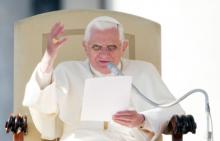
When Cardinal Joseph Ratzinger was elected Pope Benedict XVI in 2005, the surprising choice cast a pall over the liberal wing of the flock and left conservatives giddy with the prospect of total victory. Ratzinger had for decades served as the Vatican’s guardian of orthodoxy, the man known as “God’s Rottweiler,” and his vocal fans were crowing about the glorious reign to come.
“He’ll correct the lackadaisical attitudes that have been able to creep into the lives of Catholics,” the Rev. M. Price Oswalt, an Oklahoma City priest who was in St. Peter’s Square that April day, told The New York Times. “He’s going to have a German mentality of leadership: either get on the train or get off the track. He will not put up with rebellious children.”
Now, however, with Benedict set to leave office eight years later in an unprecedented departure, many on the Catholic right are counting up the ways that Benedict failed them, and wondering how their favorite watchdog turned into a papal pussycat.
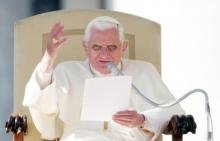
Pope Benedict XVI came into office with the reputation of a conservative hardliner, a vigorous defender of orthodoxy who wanted to restore Tradition — yes, with a capital “T” — to a church that was seen as disturbingly undisciplined.
Yet with the stunning announcement that he is resigning as the 264th successor to Saint Peter, Benedict may wind up fundamentally changing the way the church and the world view the papacy.
That’s because the papacy has come to represent more than an office, and the pope more than just a higher-ranking priest or bishop who enjoys lifetime tenure, a nice Vatican apartment, and the privilege of wearing a white cassock no matter the season.
Instead, the papacy is seen as a divine mission unlike any other in the church, and one that ends only in death.
“Christ did not come down from the cross,” the late John Paul II, Benedict’s immediate predecessor, would tell aides who wondered if his failing health and public suffering should compel him to relinquish his office.
A man is elected pope by the cardinals, yes, but at the behest of the Holy Spirit, according to Catholic theology. He takes a new name, and can’t even go home to collect his things: He moves into the Vatican right away, inhabiting a new identity in a new position — so superior that canon law says a pope can resign, but says he cannot resign to anyone.
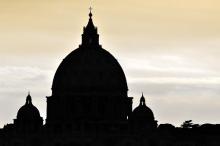
Pope Benedict XVI’s sudden announcement that he would resign by the end of the month took the church and the world by surprise, in large part because it was a move without precedent in the modern world.
But what comes next is as old and familiar as the papacy itself: Speculating about who will succeed to the Throne of St. Peter.
Indeed, within months of Benedict’s own election in 2005, church insiders and online oddsmakers were trying to figure out who might be next, given that Benedict — now 85 — was already aging, increasingly frail, and had himself declared that he did not expect his reign to be a long one.
So what will happen when the world’s cardinals gather before the splendor of Michelangelo’s Last Judgment fresco in the Sistine Chapel to elect a new pope? Who are the “papabile,” as the Italians say, the “pope-able” cardinals?
Will the conclave make the epochal break with the European monopoly and pick a cardinal from Latin America or Africa? The Catholic Church is booming in the Southern Hemisphere, as opposed to Europe and North America, where it is on life-support or barely treading water.
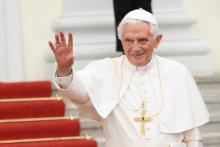
VATICAN CITY — Pope Benedict XVI will soon become the first pope to resign since 1415, short-circuiting many of the initial stages of electing a new pope. But the Vatican says the transition to a new papacy shouldn’t be all that different from normal.
Of course, the traditional rituals associated with confirming the death of a pope and planning his funeral will not be necessary. But the process outlined below, rife with secrecy and tradition, will largely follow centuries-old protocol.
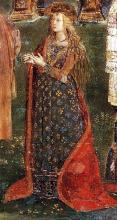
VATICAN CITY -- Their lives steeped in intrigue, treason and lust, and set against a backdrop of luscious Italian landscapes and Renaissance masterpieces, the Borgias are probably the most famous -- or infamous -- family in the long history of the papacy.
Now, a new Italian book wants to dispel, at least in part, the “black legend” surrounding a dynasty that bore two popes as well as cardinals, poets, and warriors.
Journalist and historian Mario Dal Bello drew on documents from the Vatican Secret Archive to write his new book, I Borgia: La leggenda nera, or The Borgias: The Black Legend.
For five centuries, the Borgias have attracted writers, painters and playwrights. They have been the subject of hundreds of movies and TV productions, most recently Showtime's popular series, The Borgias.
“It's easy to understand why: sex, blood, poison, power,"" Dal Bello said. "This is already fiction material."